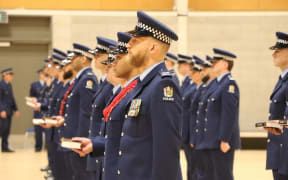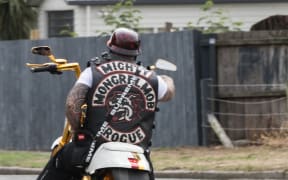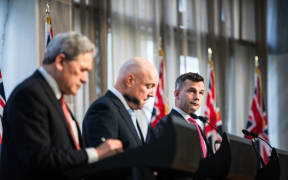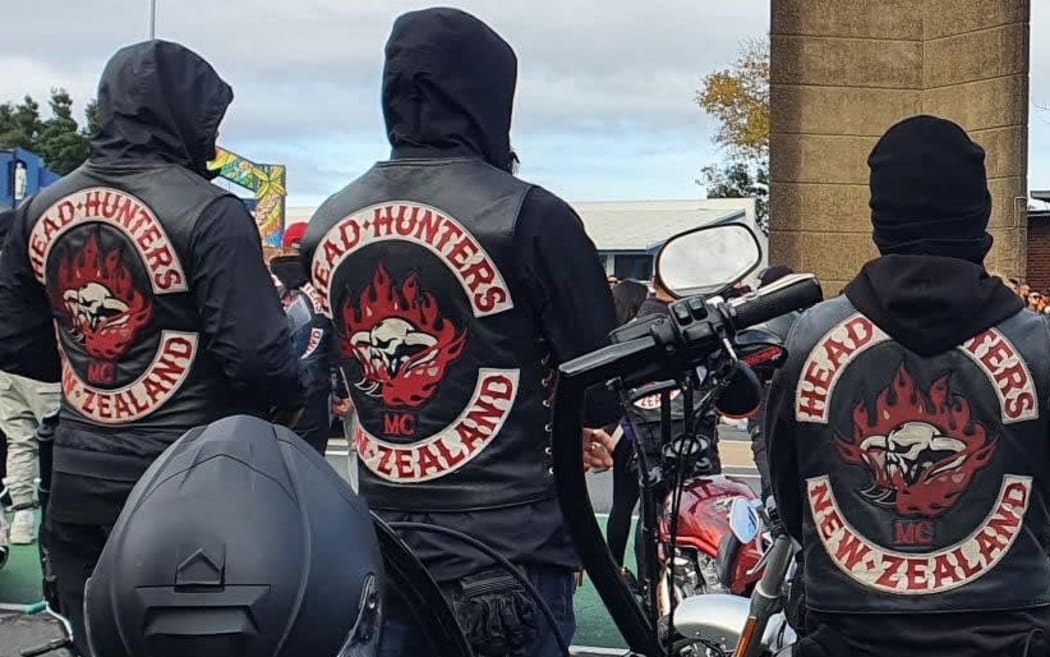
The coalition Government wants gang patches banned in public places. Photo: RNZ/John Edens
Gang patches will be banned in public and police given extra powers to stop gang members congregating under new legislation announced by the coalition government.
The crackdown, part of the coalition government's agreement, was first signalled in September during National's election campaigning.
Justice Minister Paul Goldsmith and Police Minister Mark Mitchell said gangs had recruited more than 3000 members over the past five years - a 51 percent increase.
There had also been a "significant escalation" in gang-related violence and shootings during the same time period, Goldsmith said.
"We need to take action and reduce gangs' ability to engage in criminal behaviour and prevent them from further endangering and intimidating Kiwis."
The government would introduce legislation to ban all gang insignia in public places.
Police would be given the power to issue dispersal notices, requiring gang members to immediately leave an area. They would then not be allowed to see each other for seven days.
Courts would be able to issue non-consorting orders, "which will stop specified gang offenders from associating or communicating with one another for up to three years", Goldsmith said.
"The law will also be changed to give greater weight to gang membership as an aggravating factor at sentencing, enabling courts to impose more severe punishments."
Currently, for a judge to consider gang membership as an aggravating factor in sentencing, they need to consider the relationship between a criminal's gang membership and their offending.
The government plans to remove that requirement, meaning their offending need not be gang-related for a harsher sentence to be imposed - simply being a gang member will be considered an aggravating factor.
At a media stand-up on Sunday morning, Mitchell said for too long, New Zealanders had been of the opinion that "we should wave the white flag" and let gang members run riot in society.
The new legislation would send a message that gang intimidation would no longer be tolerated, he said.
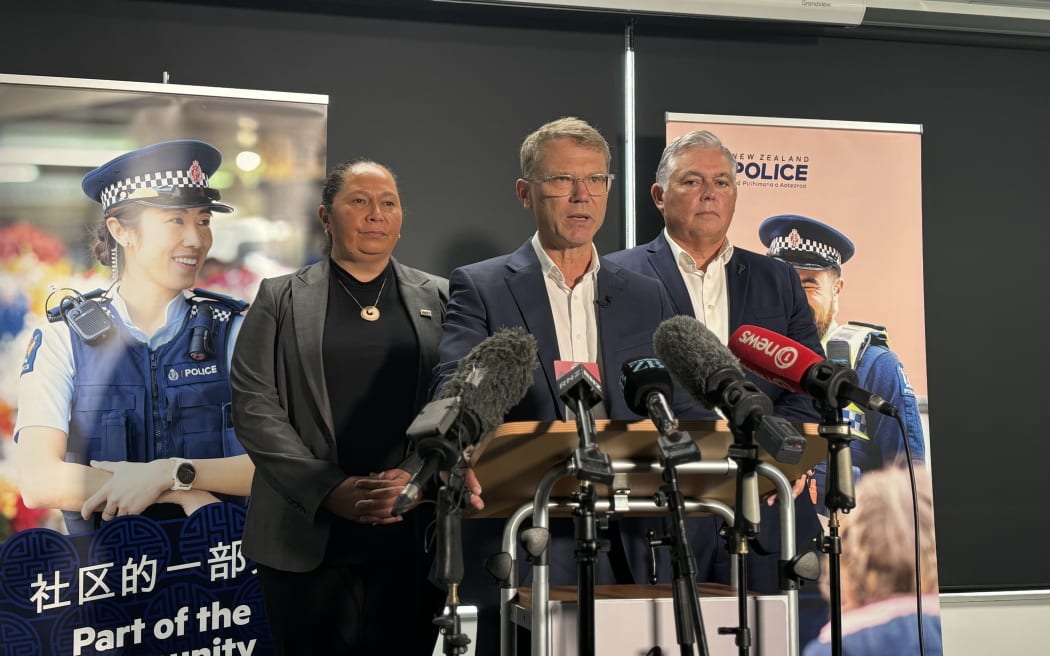
Associate Minister of Justice Nicole McKee, left, Justice Minister Paul Goldsmith and Police Minister Mark Mitchell at a media stand-up in Auckland on Sunday. Photo: RNZ / Rayssa Almeida
He pointed to the situation in the Bay of Plenty town of Ōpōtiki, where schools and roads were closed in June 2023 amid the tangi for Mongrel Mob Barbians leader Steven Taiatini.
Ōpōtiki was "under siege for days with schools closed and the Mongrel Mob running the place", Mitchell said.
Goldsmith said gangs dealt drugs and "create intergenerational trauma by pulling young people into a lifetime of crime".
Many Kiwis felt unsafe in their homes and in public places, he said.
"For too long, gangs have been an unwanted, intimidating and pervasive presence in our communities."
The legislation would be introduced to Parliament in the next few days.
When asked if the proposed new law would breach the human rights of free expression and association, Goldsmith said the attorney-general would examine the legislation when it was introduced.
The government wanted to strike an "appropriate balance" between the rights of the public and the rights of gang members, he said.
It was a fundamental human right to feel safe, he said.
Goldsmith said Police Commissioner Andrew Coster was "100 percent on board" with the proposal.
When asked if the gang crackdown would divert police resources from other crimes, Goldsmith said it was "ultimately up to them" to decide where to direct their resources.
"What this is simply doing is giving them extra tools to be able to use to deal with gang influence in our society."
Mitchell pointed to a proposed shake-up in the way police deal with mental health and family harm call-outs, saying it would release some of those resources back into "core policing".
Having a mental health worker respond to a person in crisis, for example, would mean more police officers would be free to respond to criminal matters, he said.
While in opposition, Mitchell was openly critical of the direction police had taken, and when he took up his ministerial role, he set out his expectations of Coster in a letter.
Those expectations included that the police commissioner would use the full force of the law to "significantly disrupt gang and organised crime", he said.
"I expect to see an immediate and sustained focus to deliver results in this area by police," the letter said.
The pair agreed to the terms when they met in December and Mitchell finally declared his full confidence in Coster shortly afterward.
This is not the first time there has been a crackdown on the public display of gang patches.
In 2009, the Whanganui District Council passed a bylaw prohibiting gang patches in public places. Those breaking the bylaw were punished by fines of up to $2000.
Then-mayor Michael Laws said the bylaw had been introduced due to gang tensions increasing in the area.
However, the Hells Angels sought a judicial review, which the High Court upheld, ruling the bylaw invalid.
It had not properly specified in which public places the legislation applied, Justice Denis Clifford said.
